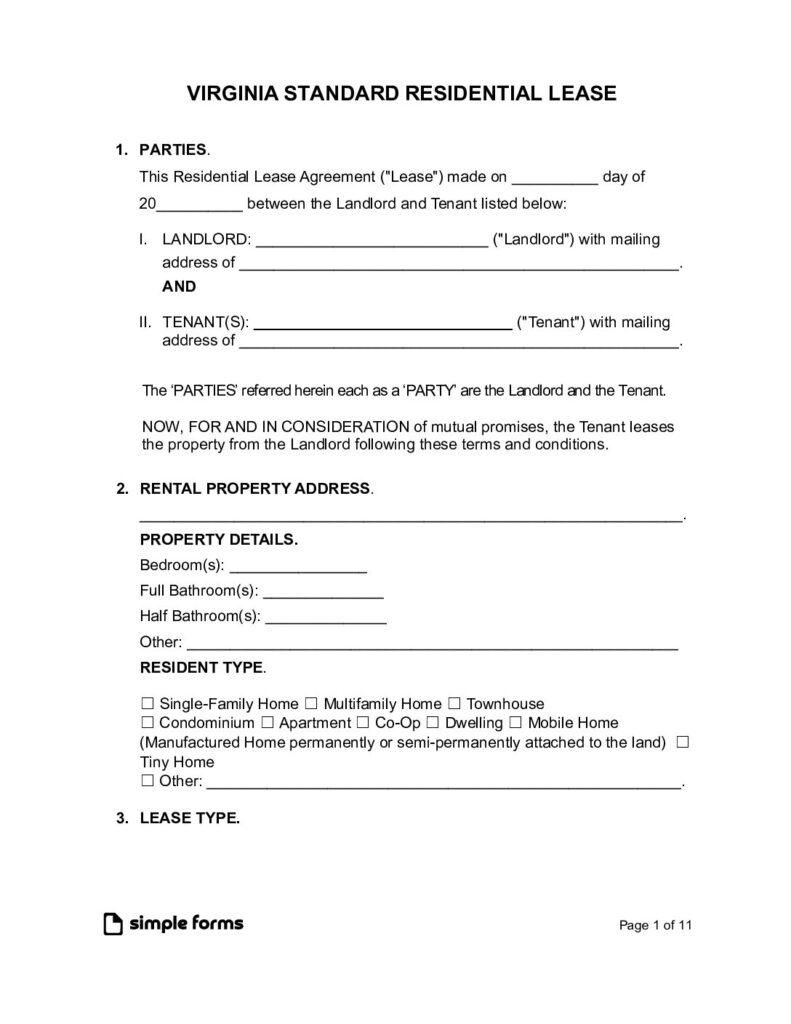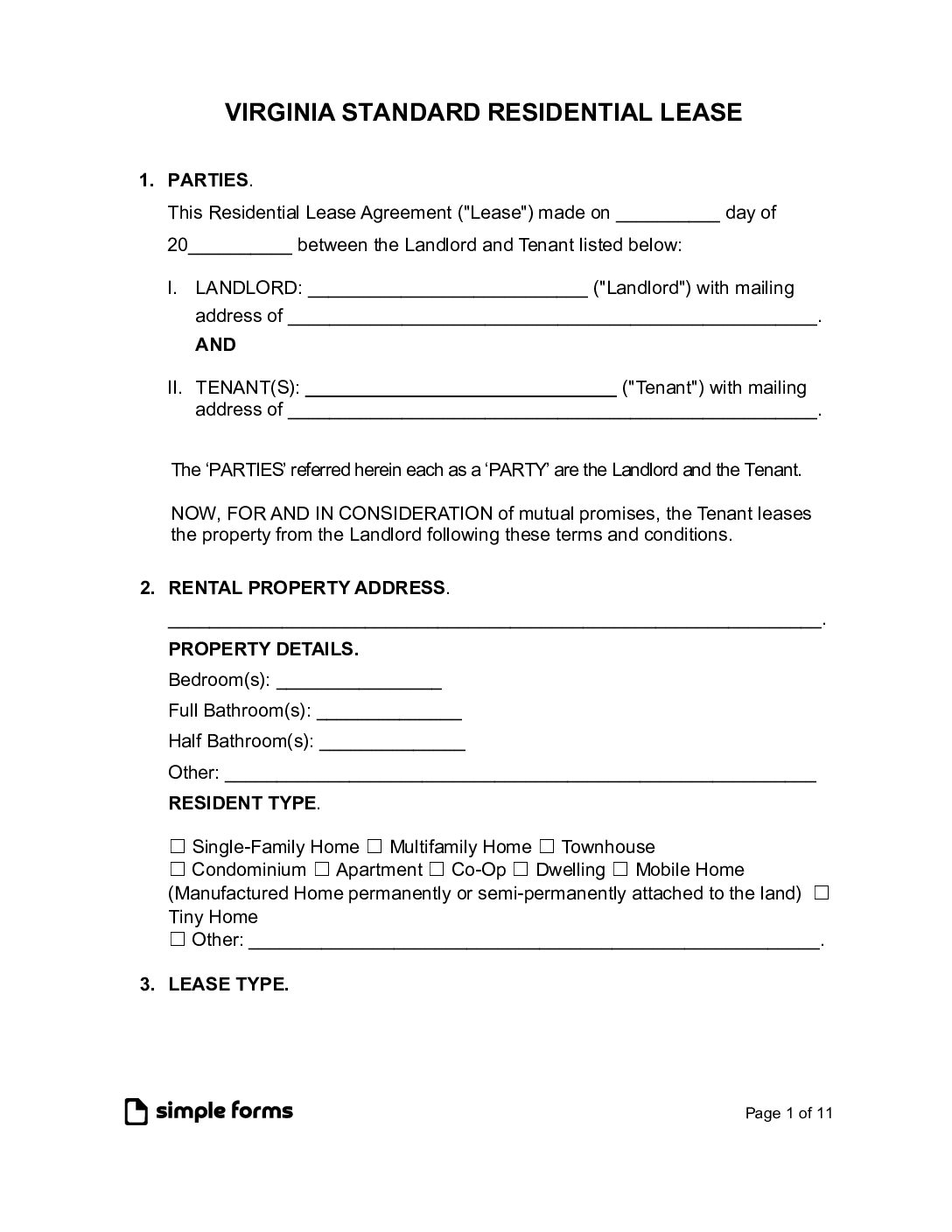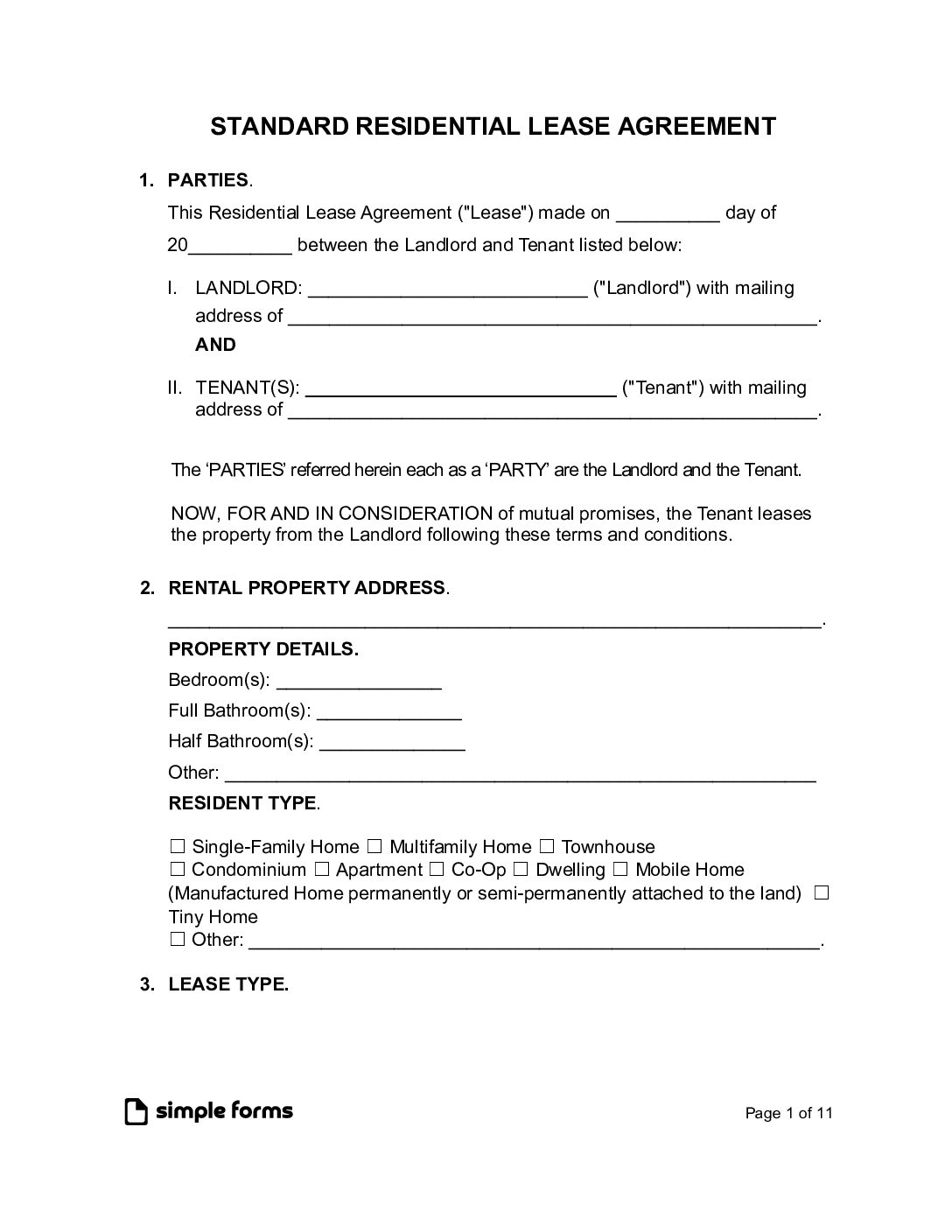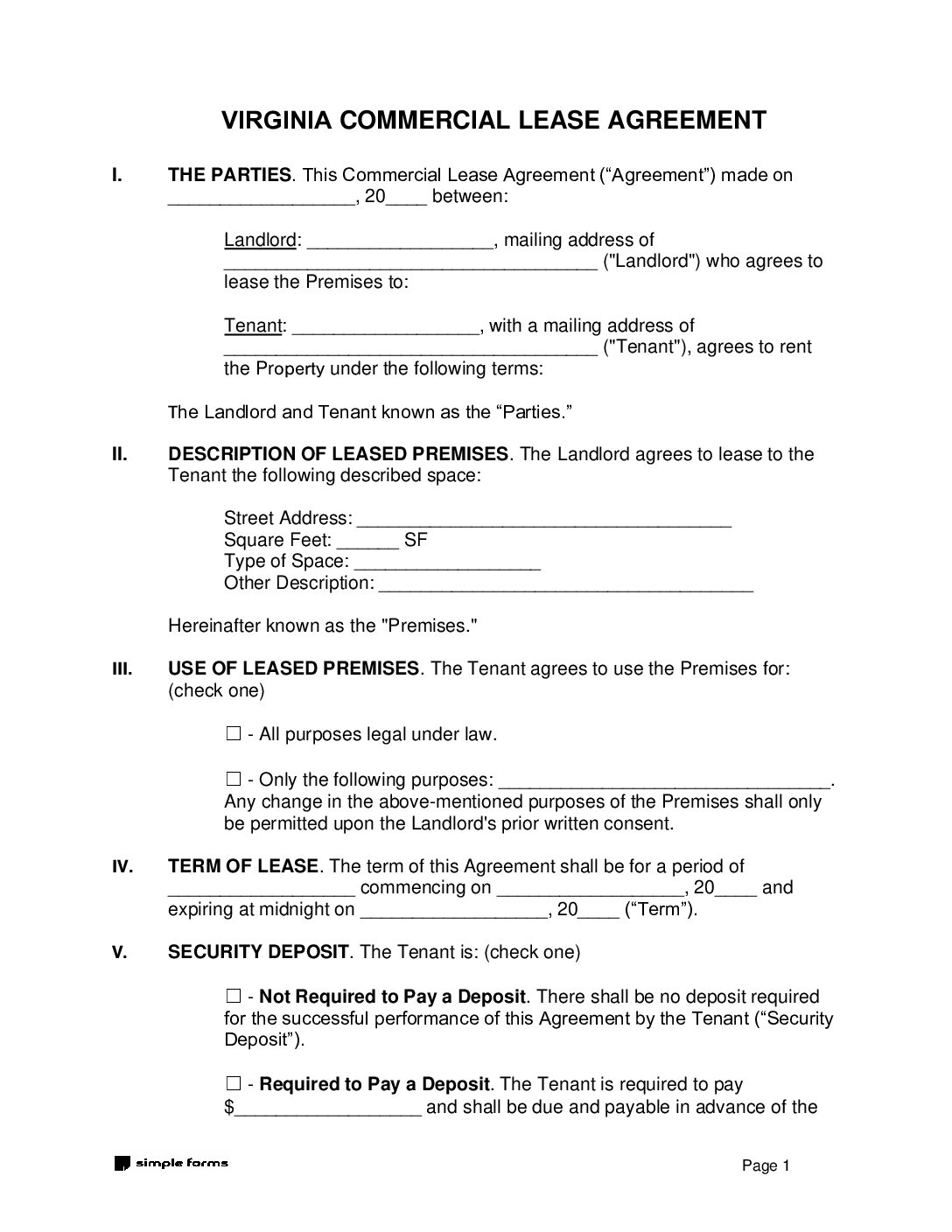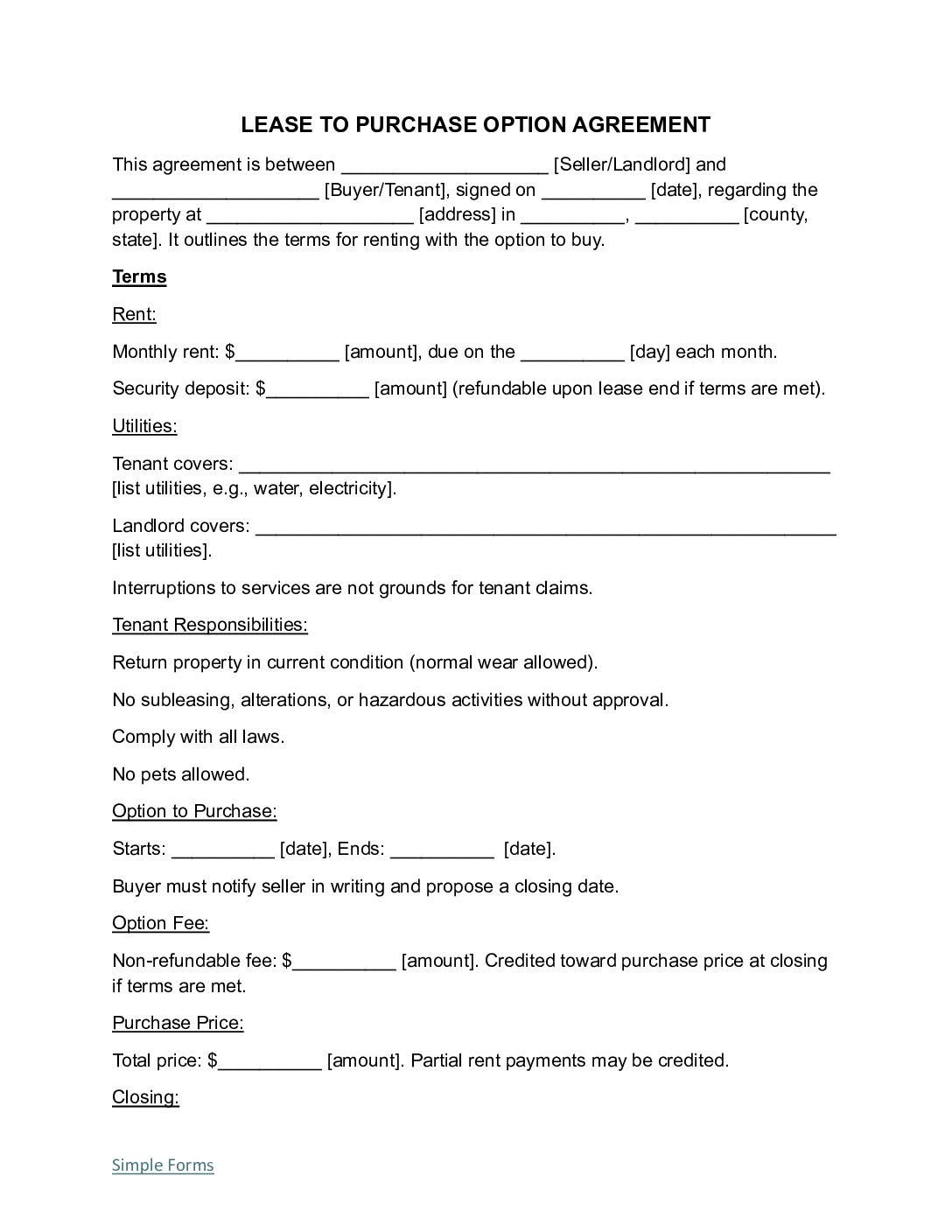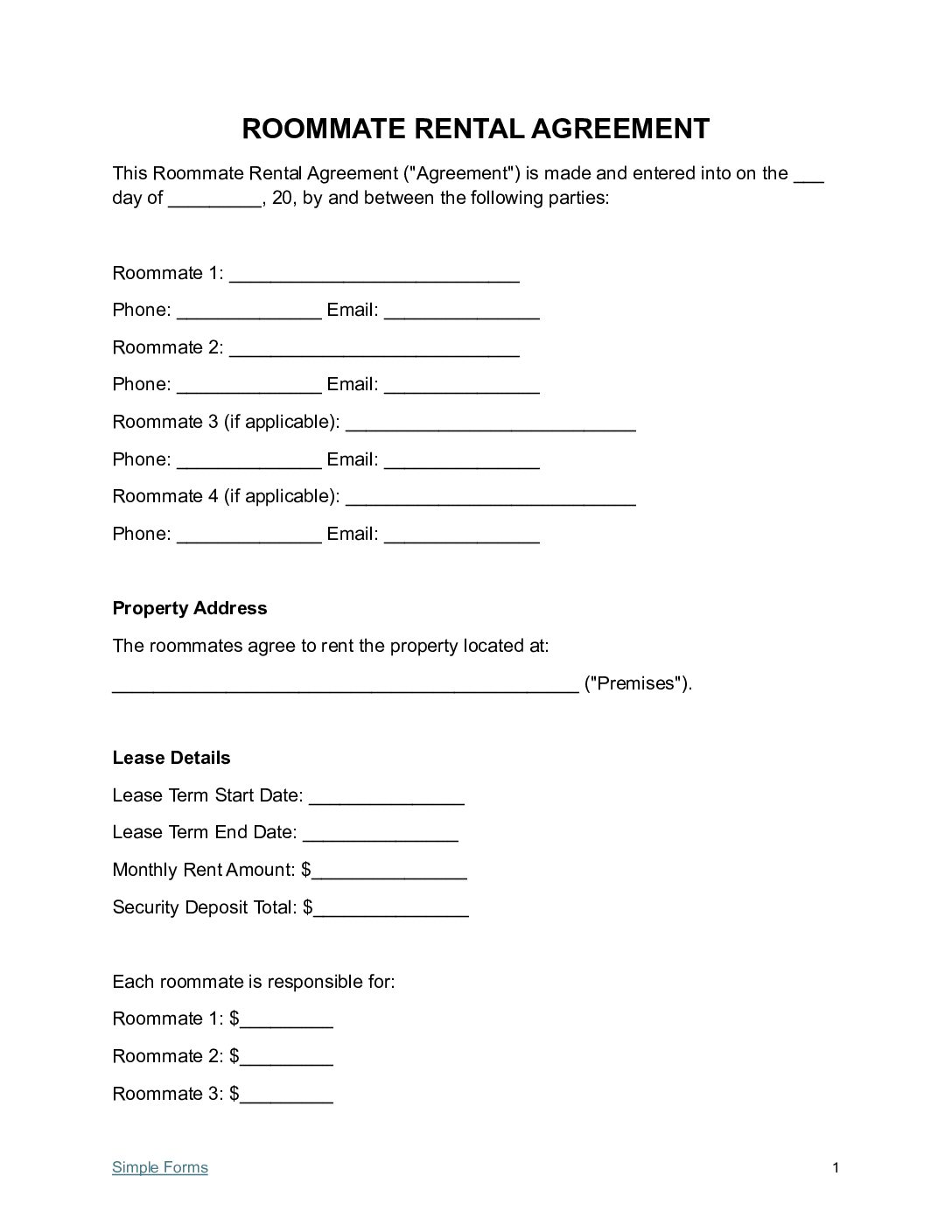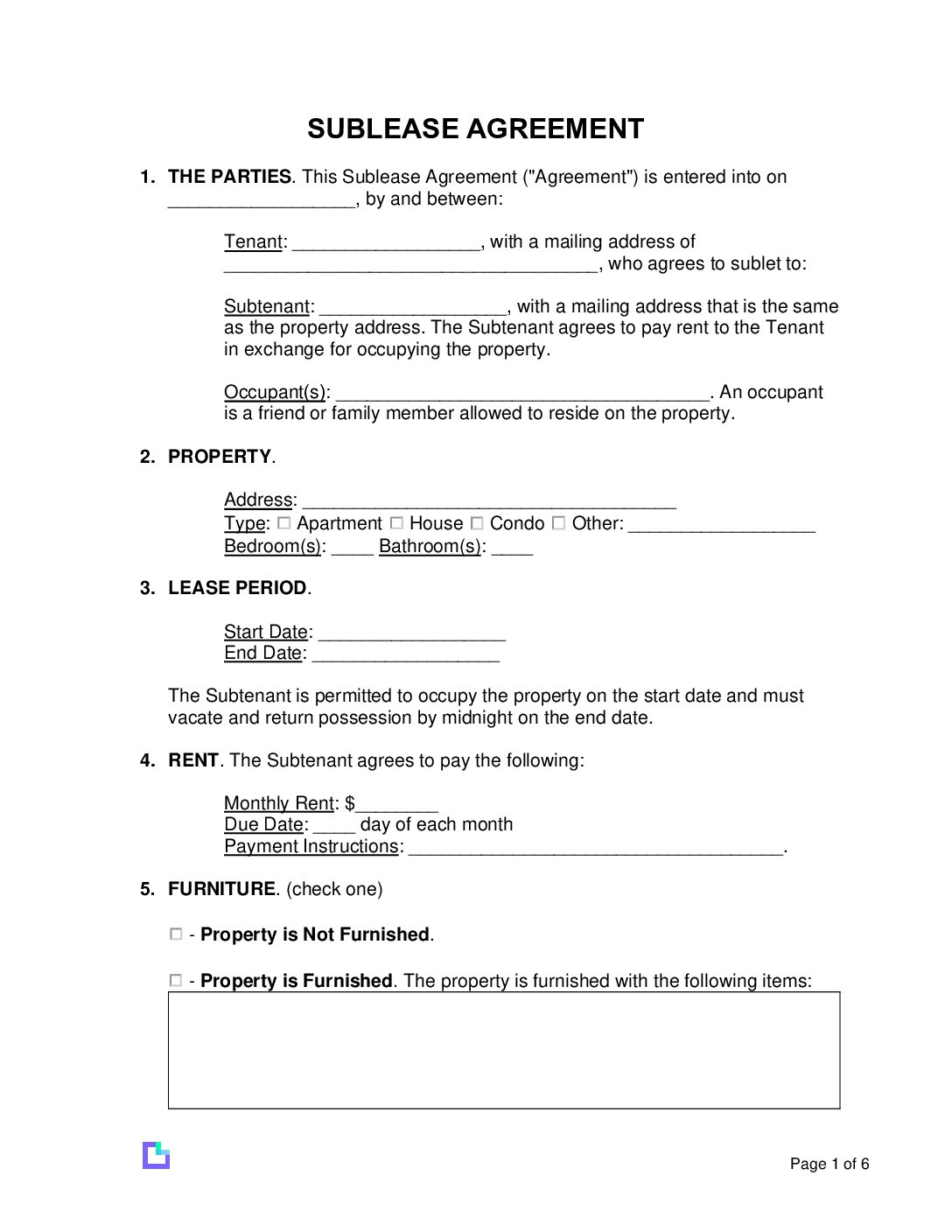Rental Application Form – The Landlord can request a rental application from Tenants to verify the financial credentials. Once approved, both parties can sign the lease.
By Type (6)
| Residential Lease Agreement – Standard 1-year lease term. Download: PDF | Word (.docx) |
|
| Commercial Lease Agreement – Used for retail spaces, office buildings, warehouses, and industrial facilities. Download: PDF |
|
| Month-to-Month Lease Agreement – Tenancy at will with renewals every 30 days. Download: PDF | Word (.docx) |
|
| Rent to Own Lease Agreement – A lease that includes an option for the tenant to purchase the property. Download: PDF | Word (.docx) |
|
| Roommate Lease Agreement – Shared living arrangements. A binding contract outlining responsibilities and agreements between co-tenants. Download: PDF | Word (.docx) |
|
| Sublease Agreement – Used to Sublet unit with landlords approval. Download: PDF | Word (.docx) |
What the Virginia Residential Lease Agreement Form covers?
The Virginia Residential Lease Agreement Form includes the following:
- Required Disclosure Forms
- Security Deposit Regulations
- Rent Due Dates and Late Fees
- Landlord’s Access to the Property
- Abandonment
- Virginia Eviction Laws without a Lease Agreement
Required Disclosure Forms
- Statement of Tenant Rights and Responsibilities – Landlords must provide tenants with a copy of the lease and a tenant rights statement within 10 days of the lease start date.
- Defective Drywall – Landlords must disclose any known defective drywall to the tenant.
- Lead-Based Paint Disclosure – If the rental property was built before 1978 landlords must inform tenants of lead-based paint health hazards and provide an EPA pamphlet.
- Methamphetamine Use Disclosure (conditional) – Landlords must inform tenants if the rental property was used to produce methamphetamine.
- Military Zone Disclosure (conditional) – If the rental property is near a military air installation in a noise or accident zone.
- Move-In Inspection – Landlords must provide a written list of damages within five (5) days of the lease start date.
- Mold Disclosure – Landlords must disclose any mold found during the move-in inspection. Tenants can report mold within 5 days and the landlord must fix it within 5 business days.
- Electronic Notices (conditional) – If landlords send notices electronically, this must be stated in the lease agreement. The Tenants can choose paper notices if preferred.
- Utility Billing (conditional) – Must disclose if the landlord uses sub-metering or ratio billing for utilities.
Security Deposit Requirements
- Maximum – The maximum amount Landlords can request from Tenants equals two (2) months rent.
- Returns – Landlord must be return all security deposits to the Tenant within 45 days of the lease end date.
Due Dates / Late Rent Fees
- Grace Period – Five (5) day grace period.
- Late Fees – 10% of the monthly rent.
- NSF Fee – $50 per bounced check.
Landlord’s Access to the Rental Property
Notice – 72 hours prior to entry unless it’s an emergency.
Abandonment
- Absence – If the Tenant is going to be gone for more than seven (7) days then the landlord needs to know ahead of time.
- Breaking the Lease – The Tenant can end the lease without penalty if the the following happen:
- The Landlord doesn’t stick to the agreement
- The Tenant needs to move for military service
- If there’s any violence/abuse on the rental property
- Utility Shutoff – If utilities aren’t kept up, the landlord can give a 30-day notice and the Tenant will have 21 days to fix it or move out.
- Unclaimed Property – The landlord can get rid of any stuff the tenant leaves behind 24-hours after the lease ends.
Virginia Eviction Laws without a Lease Agreement
Virginia law on eviction without a lease: Under Virginia law you can be evicted at anytime without a lease and the Landlord does not need to give any notice. This is known as “tenant at sufferance.”
Sources
- § 55.1-1204(H)
- § 55.1-1218(A)
- § 55.1-708
- § 55.1-1217(A)
- § 55.1-1214(A)
- § 55.1-1215
- § 55.1-1202(A)
- § 55.1-1212(B)
- § 55.1-1226(A)
- § 55.1-1204(C)(4)
- § 55.1-1245(F)
- § 55.1-1204(E)
- § 8.01-27.1(B)
- § 55.1-1244.1(C)
- § 55.1-1229(4)
- § 55.1-1249
- § 55.1-1234
- § 55.1-1235(A)
- § 55.1-1236(A)
- § 55.1-1245(A)
- § 55.1-1254
